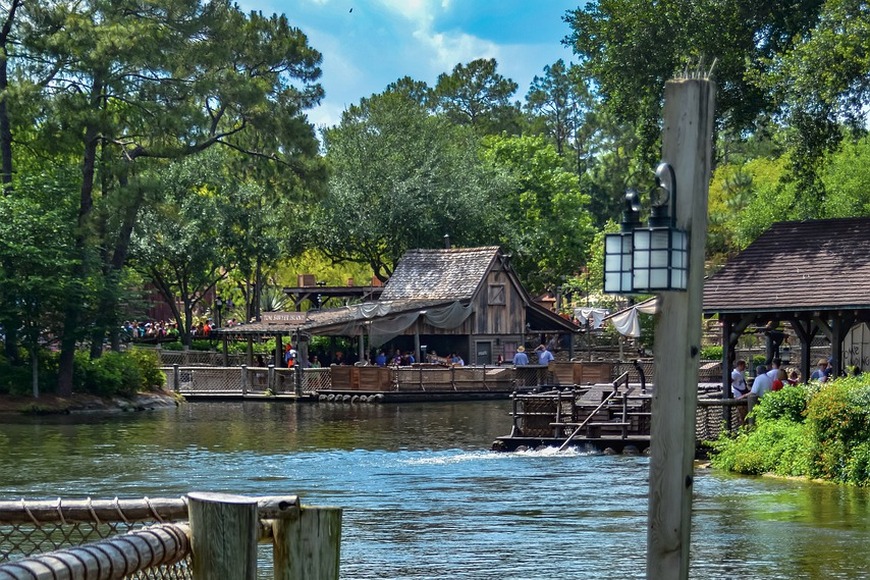The Adventures of Huckleberry Finn by Mark Twain

Mark Twain’s major work is the novel The Adventures of Huckleberry Finn (1885). “It is our best book,” wrote E. Hemingway, “all American literature has come out of it. He had in mind the broadest aspect of the work’s impact: its democratism and humanity, its universality, as well as a language new to literature, simple and as close to spoken language as possible. All these were the properties of American literature of the twentieth century.
The novel The Adventures of Huckleberry Finn is adjacent to The Adventures of Tom Sawyer: it has the same characters and the same time of action. But this thing shows a more mature position of the author, richer covers all aspects of human experience and has a deeper generalizing meaning. The writer’s purely artistic evolution is equally evident. Twain’s style, already well established in The Adventures of Tom Sawyer as one of the best in American literature, light, sharp, and sensitive to dialectal nuances, has now moved to a new quality.
The writer returned here to his favorite and time-honored form of first-person narration and made the narrator hero not Tom, a boy from a bourgeois family, but Huck, a homeless vagabond, a child of the people. This had a double effect. First, masterfully reproduced, strong and colorful, truly folk language, which is written in the book, gives a picture of American life a special plastic expressiveness, creates the impression of speaking “without intermediary” – as if through his own voice spoke about himself America. Secondly, it enabled a fuller and deeper disclosure of the character, which was only briefly outlined in “The Adventures of Tom Sawyer,” to show the formation of his personality.
Huck’s mind is free of romantic clichés, and his character is shaped by reality. He has no outwardly ostentatious virtues, but he possesses all the essential virtues. Nature has given him a strong loyal heart, open to all who are humiliated and rejecting insolent power in whatever form it may take. Huck possesses a sense of inner independence that compels him to flee from the contentment and comfort that his widow Douglas offers him into the wide, formidable world. His free-spiritedness is a rejection of sanctimony, bourgeois welfare, and legalized lies.
Compared with The Adventures of Tom Sawyer, a new and very significant characteristic appears in Huck’s character: civic courage. From the very first chapters, Twain makes Huck an active participant in the social conflict. He is the protector and harborer of a runaway slave. Moreover, by rescuing Jim from the slave traders, he risks losing his own freedom. But Twain emphasizes that the need to fight for Jim’s freedom is as inherent in Huck as is the hatred of everything that constrains him. Though not fully realized, Huck’s struggle for social justice gives his rebellion a much deeper social meaning than in The Adventures of Tom Sawyer.
The character of Huck is given a development, and this development is convincingly motivated. Huck grew up in the South, where slavery stamped its mark on the thinking of every white man. He struggles long and hard to wade through the thicket of slave prejudice in his own mind, until the man finally overcomes the Southerner in him, until he finally decides to stay true to Jim. Twain does not for a moment detach the hero from the milieu that raised him, and at the same time shows him in a state of incessant struggle with the prejudices of that milieu. The dialectical contradiction underlying the image makes it particularly lively and dynamic, gives it a psychological authenticity.
It is symptomatic that in the novel Huck, the pariah of society, still stands in the eyes of those around him on a higher rung of the social ladder than the Negro. But just as Huck surpasses Tom in courage and mental qualities, Negro Jim surpasses Huck in loyalty and natural courage. To portray the black man as the noblest man in the novel, to paint a picture of a friendship between a white man and a Negro, a friendship that gave much to both, required great courage and audacity in 1880s America.
It took no less courage and boldness on the part of Twain the artist to break the accepted norms of literary language so defiantly for the sake of the truth of life. How innovative this work was, evidenced by the fierce controversy that developed around the novel after its publication. The zealots of fine literature, who demanded a flawlessly smooth syllable, a flawlessly virtuous hero, and necessarily “good manners,” branded the book “obscene, vulgar, and rude. In Concord, Massachusetts, The Adventures of Huckleberry Finn was removed from city libraries as “garbage fit only for landfill.